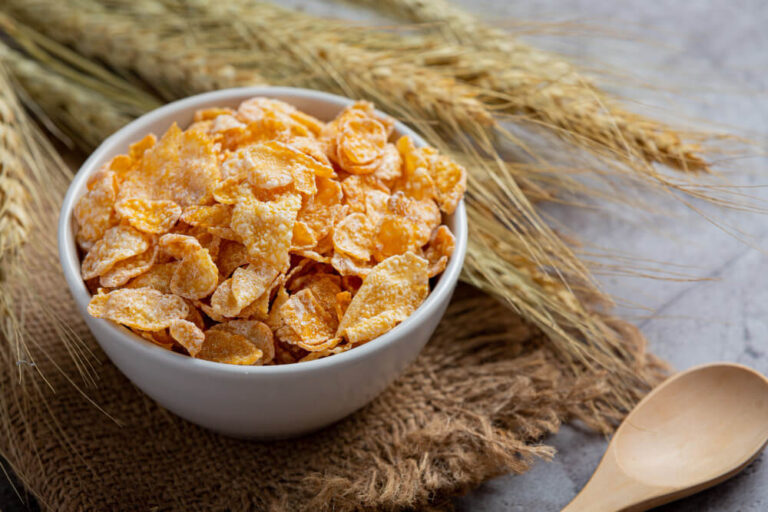Fiber One Cereal, a popular high-fiber breakfast product by General Mills, has recently been facing a shortage, leaving many consumers frustrated and disappointed. In this blog post, we will delve into the reasons behind the fiber one cereal shortage, its impact on both consumers and retailers, and explore alternative high-fiber options to help you meet your dietary needs during this challenging time.
What is Fiber One Cereal?
This healthy and tasty breakfast offering from General Mills is known for its high fiber content, making it an excellent choice for those seeking a wholesome start to their day. With its crunchy texture and mildly sweet flavor, Fiber One Cereal has won over many breakfast tables nationwide.
But recently, consumers have noted its absence from store shelves—a situation that’s left many wondering about a possible fiber one cereal shortage.
Is There a Fiber One Cereal Shortage?
Yes, there is a Fiber One cereal shortage due to increased demand, supply chain disruptions caused by the COVID-19 pandemic, and production issues at General Mills cereal plants. General Mills, the cereal’s manufacturer, has confirmed the situation and assures consumers that efforts are underway to restore supply and bring back our favorite fiber-filled breakfast.
Fiber One Cereal Shortage 2023
As of 2023, there were reports of a Fiber One cereal shortage. This shortage was likely due to a combination of factors, such as supply chain disruptions, manufacturing challenges, or increased demand. While the exact reasons for the shortage may vary, it caused temporary disruptions in the availability of this popular high-fiber cereal.
It’s important to note that the situation may have changed since then, and it’s recommended to check with local retailers or manufacturer for the most up-to-date information.
Why is There a Fiber One Cereal Shortage?
There are a few factors that have contributed to the Fiber One cereal shortage:
- Increased Demand: Fiber One cereal has become increasingly popular in recent years due to its high fiber content and health benefits. This increased demand has put a strain on the supply chain.
- Supply Chain Disruptions: The COVID-19 pandemic has caused disruptions to the global supply chain, making it difficult for manufacturers to obtain raw materials and produce finished products.
- Production Issues: General Mills, the manufacturer of Fiber One cereal, has experienced some production issues at its cereal plants, which has further limited the supply of Fiber One cereal.
As a result of these factors, there has been a shortage of Fiber One cereal in stores across the country.

Impact of the Fiber One Cereal Shortage on Consumers
For many, the Fiber One cereal shortage has been a significant inconvenience, particularly for those who rely on this cereal as a primary source of dietary fiber. Some consumers with specific dietary needs or health conditions may find it challenging to find suitable alternatives.
The shortage has also led to an increase in third-party sellers offering the cereal at inflated prices, taking advantage of desperate buyers.
Alternatives to Fiber One Cereal during the Shortage
During the Fiber One cereal shortage, there are several alternative cereals that consumers can consider. Some popular options include Kellogg’s All-Bran, Post Grape-Nuts, and Kashi Go Lean. These cereals are all high in fiber and offer similar health benefits to Fiber One cereal.
Additionally, many grocery stores and online retailers offer their own brands of high-fiber cereals that are often more affordable than name brands. It is important to read the nutrition labels carefully when choosing an alternative cereal to ensure that it meets your dietary needs and preferences.
When Will Fiber One Cereal Be Back in Stock?
General Mills has not announced a specific date for when Fiber One cereal will be back in stock. However, the company has stated that it is working to increase production and resolve the supply chain issues that have caused the shortage.
Consumers can expect Fiber One cereal to return to store shelves in the coming weeks or months. In the meantime, consumers can consider alternative high-fiber cereals such as Kellogg’s All-Bran, Post Grape-Nuts, and Kashi Go Lean.
Conclusion
While the fiber one cereal shortage is an inconvenience, it’s also an opportunity to discover new breakfast options. Keep in mind that General Mills is working hard to restore supply, so our favorite high-fiber breakfast should be back on the shelves by late October 2023.
In the meantime, let’s embrace this opportunity to explore the world of high-fiber cereals and enjoy the nutritional variety it brings. After all, breakfast is the most important meal of the day, and it’s always exciting to try something new!
Also Read:


